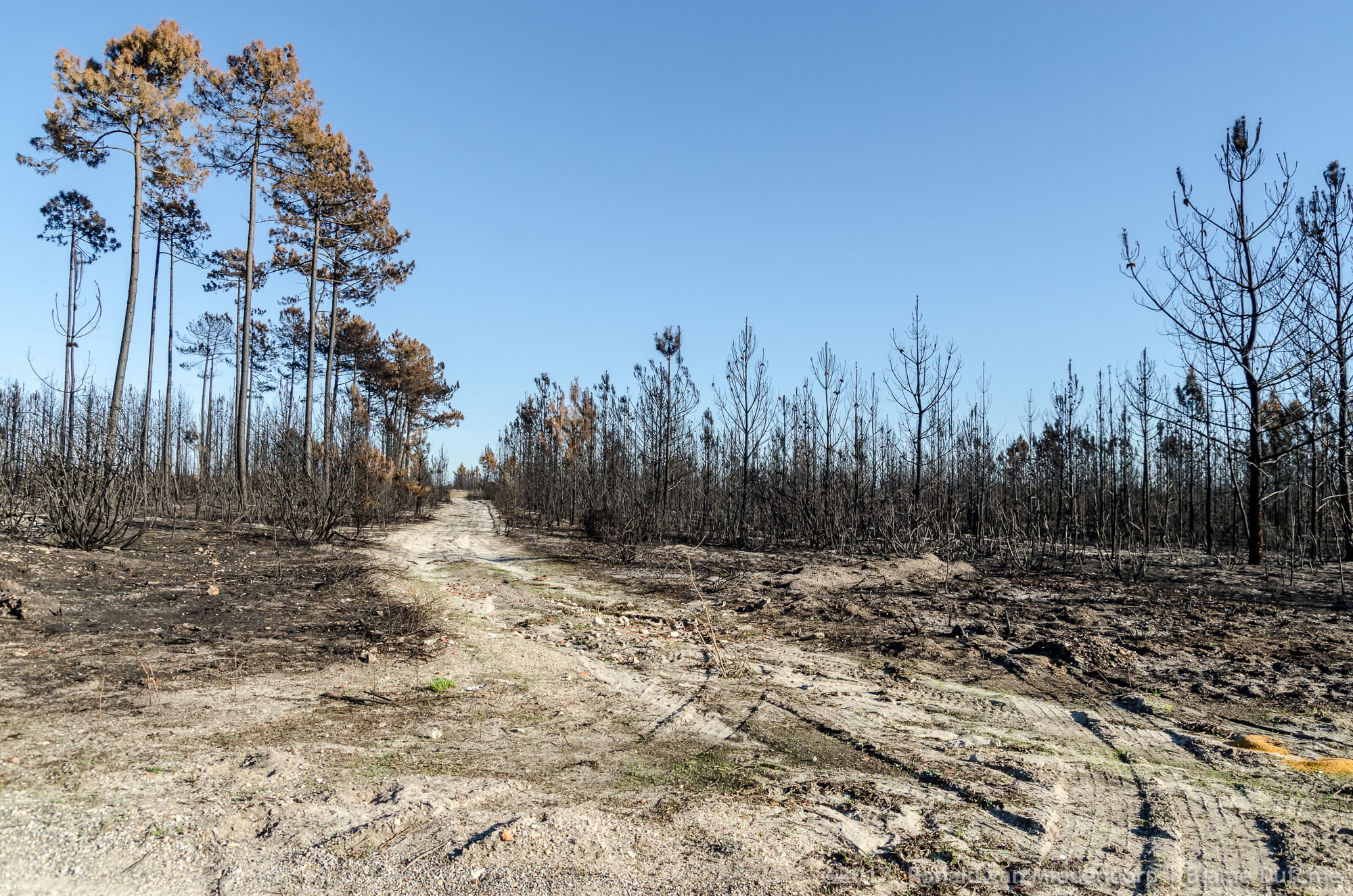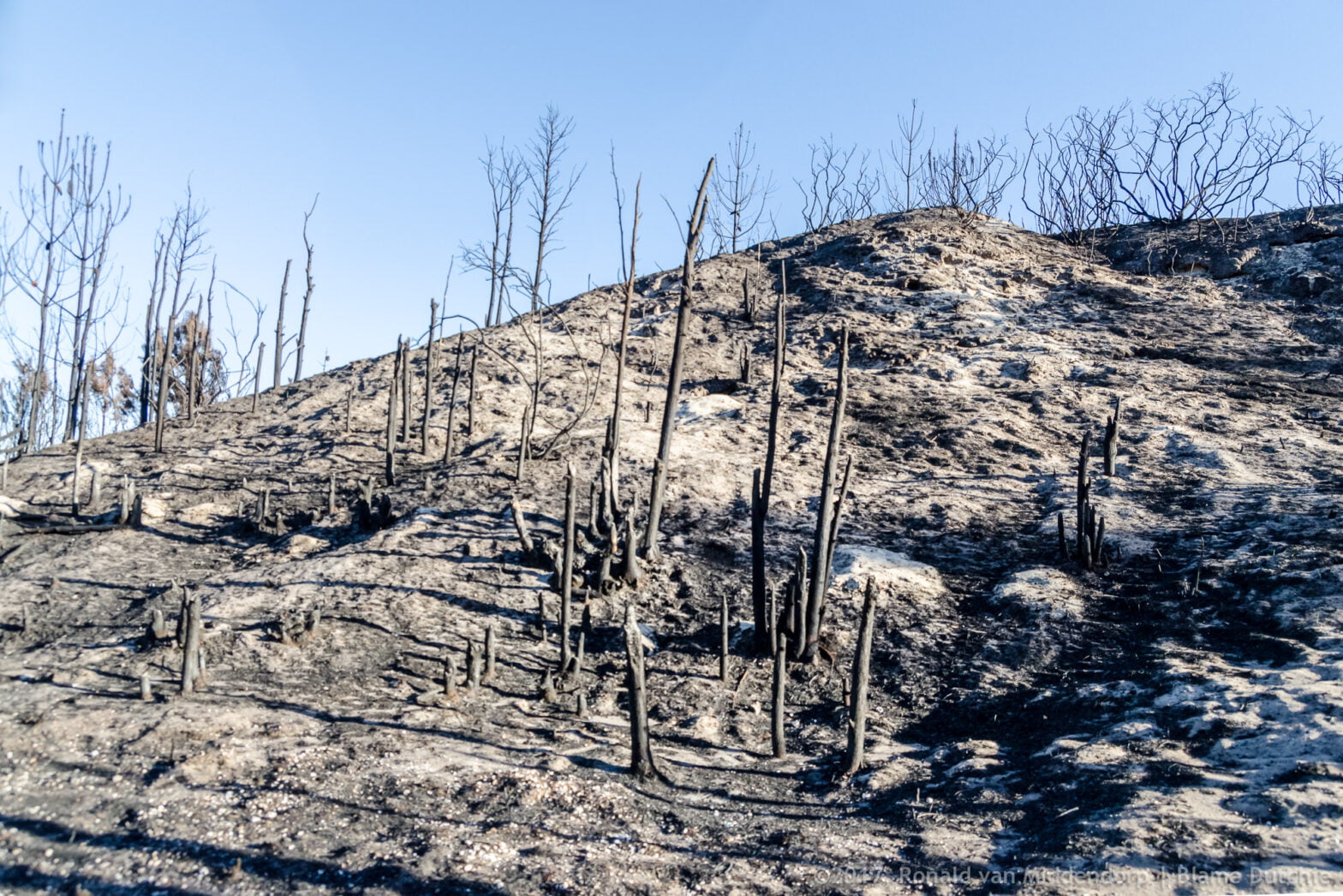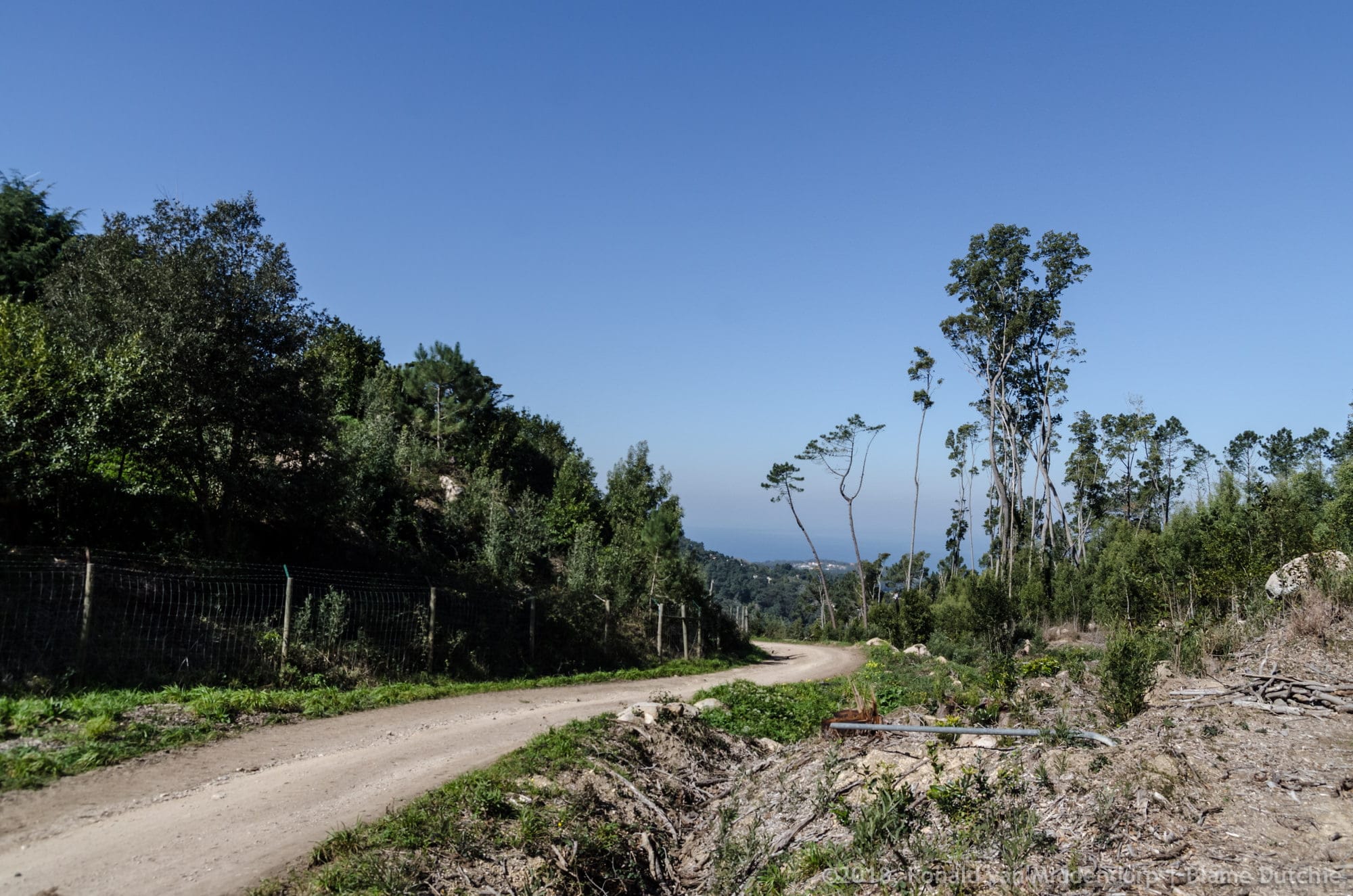A road trip
It’s October 29th and I feel blessed. A few days before, Miguel asked me to be his wingman on a drive into the interior. During the past months, the longest drives I made were to Carnaxide, where I was having my radiotherapy sessions, so even though I am not sure how grateful my body will be the days after, I am glad that I am sitting next to him while the landscape changes. Hills with flat buildings and industrial zones make way for distant hills, pines and eucalyptus. Of course, eucalyptus has a bit of a bad name considering they are the main reason the wildfires of the past weeks spread like … wildfire. Their scent is fantastic, a real blessing to the respiratory system and with the heights to which they can grow they look fantastic, but there are too many of them, and they suck water from the soil like mad and burn easily. Very.
We are undertaking this short road trip, because Miguel has a bag of clothes he wants to deliver to one of the fire-brigade stations in the Castelo Branco region. Like every year, these past weeks the area has been hit by heavy forest fires, leaving many people without shelter or clothes to wear. When I see the small bag that Miguel has to offer, tears start to burn in my eyes. To drive over two hundred kilometres to deliver this drop on a hot glowing plate seems such an inadequate gesture that the love I already feel for him instantly doubles. There is no doubt in his mind – nor mine – that the people in this area need whatever we have to offer.

After a pleasant drive – with only one traffic jam, close to home – we walk into the storage facility at Vila de Rei, where volunteers of diverse plumage welcome us. Firefighters, boy and girl scouts as well as locals from the area doing what they can to collect, store and distribute the goods. Not for the first time when a disaster does or has done its damage, I feel insignificant. Taking pictures after the event. Safe. Free of risks, like a bloody tourist.

We are about 40 km away from Pedrógão Grande, where 64 people lost their lives during the intense fires in June. The damage where we are is more recent, and according to the bombeiros there are no burned down buildings for me to shoot. A good thing, needless to say, although disaster usually makes for great imagery. Sad as that may be.
Driving through the area, soon we smell what’s left of the forest. After leaving the main road, we find a place to park the car and more or less in silence we let the devastation sink in. On any other, the air would have been filled with birds’ songs. Insects would be buzzing, humming and clicking. We would have been hearing the whispering leaves. None of that today. Apart from cars passing in the distance, the silence is complete. We also fall silent. Slowly I attach my recently serviced Tamron 17-50 and start walking. A sadness comes over me as I start taking my first shots. Skinny, black skeletons of pine trees on damages soil. Apart from the blue sky, it’s like looking at the world through a desaturation filter.

I was lucky enough to spend part of my childhood living close to forests. Not big ones, The Netherlands are not the biggest country and compared with for instance Germany’s Schwarzwald, Holland’s National Park Hoge Veluwe where I spent many a good day and night has the size of a postage stamp, but it contains forest nonetheless. Being a boy scout, a couple of times a year I would spend a few days or a week in a self-built camp, where we would build wood structures, sleep in a tent, learn how to read a map, set out coordinates and use our compass to follow routes that our Scout Leaders had set out for us. Based upon Lord Baden-Powell’s ideas about self-reliance, the group I was a member of had a strong focus on the outdoors and survival skills.
One of the most important of those skills is to know how to build a risk-free fire. And which type for which purpose. A favourite way of spending time would be to build a big campfire and spend several hours sitting with a group of boys, listening to (horror) stories, baking bread on a stick and stare into the flames. The following morning, the fire would no longer be burning – but under the grey ashes there would be warm, simmering coals that we would use to start small morning fires to cook our breakfast. At the end of the camp, all fireplaces would have to be thoroughly extinguished and buried. The area then would have a very peculiar, not unpleasant smell. That’s what the much stronger smell in the Castelo Branco district reminded me of.
Text continues below the gallery.
Suddenly it strikes me how much the trees that are left and I have in common at this point in time. We both have been burnt, both of us have lost a lot of weight, and we look skinny. It is as if we’ve been hit by a sudden wave of anorexia nervosa. At the same time we show strength. We are filled with determination. Just as my hair is slowly coming back, so are thin blades of grass sticking out of the soil here and there. Many trees may be severely damaged on the outside and suffer from root systems that are momentarily shut down, they will survive this ordeal. Also, the messengers we don’t see are still there. Fungi hidden in the soil, filled with information on how to get its damaged habitat back in order. Inside my body microbes, bacteria and probiotics. Perfect systems they are and as long as we give them what they need, they will do what they are designed to do. Perfectly.
Text continues below the gallery.
Unfortunately, we don’t live in a perfect world, or rather… We are the reason it seems to be imperfect.
Isn’t it so? Whether you believe in God as the creator or some galactic evolutionary force, it would take quite a bit of arrogance to assume the system that we are part of is not perfect. Think about it: would a creator who is capable to forge all that is around us – and make us part of it also – really create something that is imperfect? Look at how all things in nature work together and seem to have a purpose. Where are the mistakes? As for the theory of a galactic evolutionary force (I’m going to call it GEF from now on, simply because I like the idea), I can imagine that the system is (systems are) still in development and therefore bugs exist. Bugs like people setting forests on fire for money or because they get a kick out of it. Little mishaps as volcanoes spreading dust and death and tsunamis. Really?
Text continues below the gallery.
Let there be no doubt about it: it’s us! We humans are the bugs in the system. We mess things up. And, following the idea of a perfect galaxy with a perfect world and our bodies being perfect systems in that bigger picture, that calls for meditation. For if we are truly perfect, then how can we do such stupid things as poisoning our bodies and destroying the places we need for our survival?

































